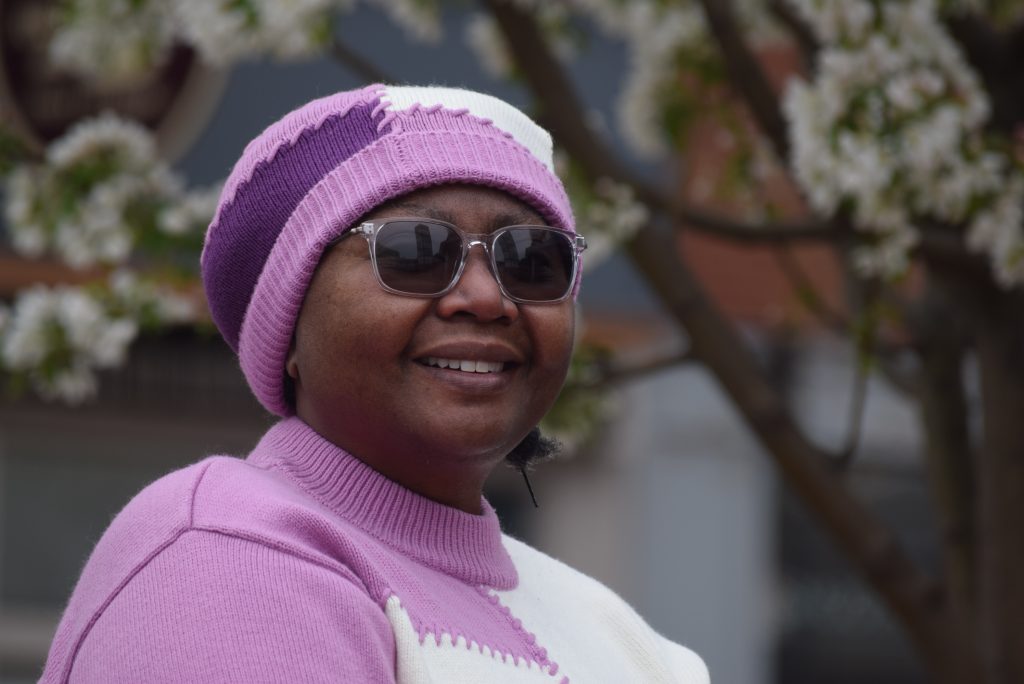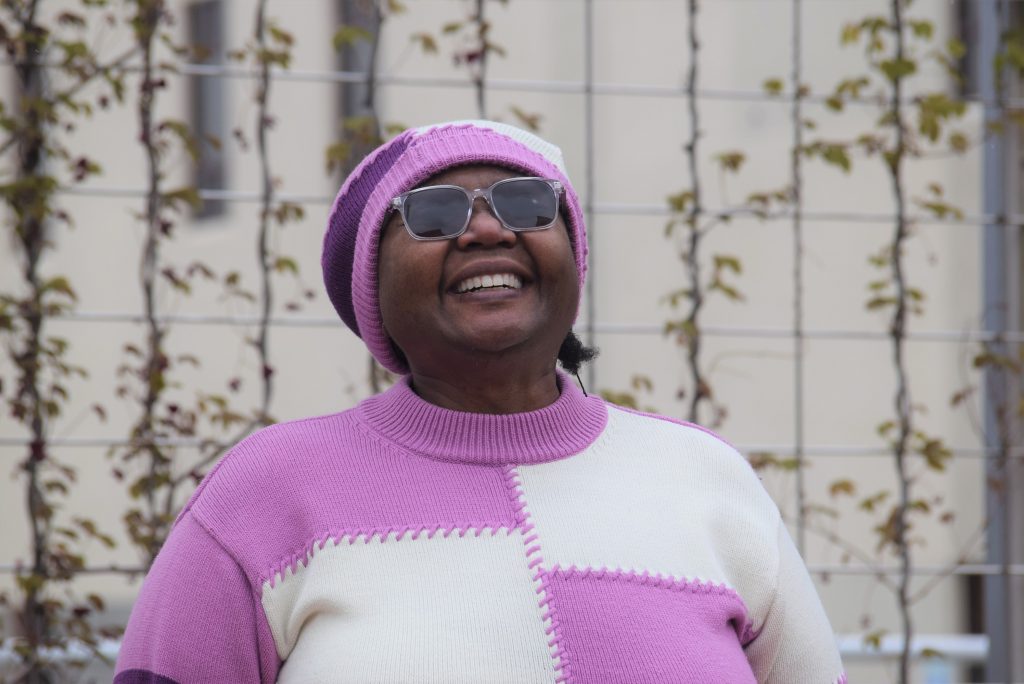Rossie’s Story: ‘Absolutely There’s Hope’
May 4, 2021

If you’re active in the Battle Creek community at all, you might know Rose “Rossie” Miller.
She’s worked with the South Michigan Food Bank, operated a food pantry, served on the Yes we can! initiative through the Battle Creek Community Foundation, chaired the board for what is now Grace Health, and served multiple terms on the Battle Creek Public Schools Board of Education. She’s volunteered through Women’s Co-Op and Haven of Rest Ministries, served on a residential advisory group for W.K. Kellogg Foundation, and she has worked with veterans and in home health care.
“I’ve always been into helping. I love helping,” she said. “I’ve always tried to do things that would help.”
Miller loves Battle Creek and its people. She’s especially eager to help those who struggle to make ends meet. Rossie understands their plight most of all—she’s among the 47% of households in Battle Creek that are Asset Limited, Income Constrained and Employed (ALICE).
Journey to ALICE
Born in Camden, Miss., Miller came from a family of 22 children. At age 60, she’s one of six siblings still living. Miller arrived in Michigan as a child, attending schools in Battle Creek and Albion before graduating from Battle Creek Central. She earned her associate degree in Liberal Arts at Kellogg Community College, her bachelor’s degree in Human Services Administration from Siena Heights University, and is currently studying for her master’s degree through Walden University.
Miller fell in love with her husband, a Vietnam War veteran, and together they created a blended family with six children. She held solid jobs in health care and food relief, in addition to her volunteer work on boards and committees. By every measure, Rossie Miller and her family expected a financially stable life.
“When I was working in home health care, that’s when things started getting really rough for us because my husband started having a lot of medical issues,” Miller said.
Unable to add him to her health care plan, Miller watched as their finances dwindled between medical costs plus a mortgage, utilities, insurance and other household expenses. Then a car accident took out their vehicle. By then Miller was working just nine hours a week.
“When you’ve been used to helping people, it becomes hard to think that you have been working, that you thought you had your head just above water, and then you find yourself back in that place again,” said Miller.
Challenges and Misconceptions
A lot of programs available to help ALICE have either/or income limits. Miller points to the Supplemental Nutrition Assistance Program (SNAP), commonly called food stamps, as an example. Earn even a dollar over the limit, and you get nothing—which happened to Miller and her husband.
“Our system is broken,” said Miller. “True social work looks not at the person being the problem, but it looks at the strength of the person and builds on that.
“If we look and say, ‘What is that person’s strength? How can I accentuate that strength?’ and then help them make some accomplishments. That would be powerful.”

Getting there is a shared effort, she added—one that rejects the biases and misconceptions that too many people embrace when considering ALICE.
“I’m not going to say everybody’s perfect and nobody’s going to try to overcome the system,” she added. “You can have 20 people, and maybe that one will do it. And instead of saying, ‘Look at the good those 20 are doing!’ we look and focus on the one—and then we penalize the 20.”
A better way is to tap the strengths of ALICE to help everyone, she said. “It’s a win-win that way. It’s not me trying to get over your system or trying to beat it because that’s the only way I’m going to be able to get resources. It’s, ‘This is what I have, this is what I bring to the table, this is what I need.’”
Miller still engages with the Women’s Co-Op, using it as an example of a strength-based, collaborative way.
“If there’s a woman in the Women’s Co-Op that does not have child care and needs to go to a job interview or something, if there’s one of us that can watch that child or children while they go do that, we do that. If there’s one of us that has a washing machine that can allow that family to come wash a couple of loads of clothes, we let them come do that. If there’s some of us that can get together because a family needs a basket of food, and maybe each one of us may only have two cans of something, or maybe we might have some meat, we put all our stuff together, and then we go help that family.”
Food, transportation, child care and financial management skills are among the many, diverse needs for ALICE families—needs that require a thoughtful, collaborative, “hand-up” approach.
“Hear us. Don’t always assume you have our answers,” she said. “You don’t have our answers. We are the experts of our experience. I just want you to hear me first.”
Hope for the Future
Miller has a better job now, one with the chance to grow. She also has a side gig with her husband making breads, puddings and cakes. And her church family, including co-pastors Fred and Shannon Sweet, are helping where they can. However, Rossie’s husband still struggles with health issues. Plus, two sons recently had to move back home.
The financial challenges are there—but none of that dims Rossie Miller’s desire to make a difference.
“What I don’t want to come across as is whiny or complaining about something,” she said. “In this journey I’m on, I have run into so many people who have so many things happen to them and have lost so many loved ones in this pandemic and stuff. So I don’t want to stop helping people. “Absolutely, there’s hope. Every day you’re breathing, there’s hope. And if you take your time and help someone, each one teaches one, and I give you a hand up, not a handout, there’s always hope.”
Learn more about ALICE on our Meet ALICE webpage and at United For ALICE.
![]()
Posted in ALICE, BC/Kzoo, BC/Kzoo General
